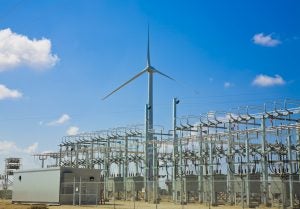 When Texas state senators and representatives return to their home districts this summer, they’ll be able to tell constituents they did something in response to this winter’s deadly energy crisis. But they better not brag. And they might face some difficult questions when constituents ask why the Electric Reliability Council Of Texas is facing another supply crisis during a very predictable warm June.
When Texas state senators and representatives return to their home districts this summer, they’ll be able to tell constituents they did something in response to this winter’s deadly energy crisis. But they better not brag. And they might face some difficult questions when constituents ask why the Electric Reliability Council Of Texas is facing another supply crisis during a very predictable warm June.
Because despite promises to make sure February’s grid failures are never repeated, the Legislature only passed modest grid-related bills this session. They missed a once-in-a-generation opportunity to pass comprehensive electricity reforms that would have fortified the grid and protected Texans from increasingly frequent weather-related energy crises. And they spent an unforgivable amount of time and effort vilifying solar, wind and electric vehicles and considering punitive legislation that had nothing to do with February’s disaster.
What got passed
Electric utilities and generators will finally be required to weatherize their equipment against extreme winter. It is doubtful any natural gas facilities that are not already weatherized will be required to weatherize, though, due to fundamental flaws in the legislation. SB 3 also improved inter-agency and public communications during a weather crisis.
Current power crunch underscores Texas Legislature’s lackluster efforts to “fix the grid” Click To TweetThere were also some changes to how ERCOT and the Public Utility Commission of Texas are governed — who can and can’t hold leadership positions and where they can and can’t live, for example — political changes that wouldn’t have prevented the crisis or saved a single life.
What got passed over
More numerous than the changes legislators enacted are the genuine, long-term solutions they left on the table — solutions that would improve power grid resiliency, protect Texans in their homes and create a more equitable energy market while accelerating the decarbonization of our energy system.
They ignored the power of energy efficiency to reduce overall electric demand and protect people from the cold or heat during extended outages. Reducing energy consumption through more efficient use is just as impactful as adding new generation resources. For decades, energy efficiency measures have proven to be among the most affordable and cleanest ways to balance supply and demand. After all, the cleanest and cheapest kilowatt is the one you don’t have to generate, transmit and use. This winter, it would likely have saved lives in older and less affluent neighborhoods where some Texans took dangerous measures to try to stay warm.
In fact, the Legislature passed on expanding solutions that would reduce grid demand while saving consumers money. Demand response technology, energy efficiency, local distributed power generation, and various automation and energy management tools have proven their ability to manage and reduce electricity demand. These technologies saved lives this winter. If embraced more enthusiastically by Texas leaders, these measures could shave invaluable megawatts from the state’s demand. However, none of them got a fair hearing this session.
And environmental groups like EDF aren’t the only ones who think the Legislature left proven solutions on the table. A group of five former commissioners of the PUCT recently published a report urging further action on many of these same things.
The Legislature did find time to attack clean energy and electric vehicles
In the midst of the February crisis, Gov. Greg Abbott spread falsehoods on Fox News that frozen wind turbines caused the grid failure. He quickly backtracked, but his colleagues in the Legislature continued the attacks. One proposal would have forced solar and wind power producers to shoulder all of the costs of maintaining minute-to-minute reliability for the entire electric grid — costs that are normally shared by all customers. The bill was not only punitive, but it had nothing to do with the winter crisis. Another proposal would have levied an outrageously high annual fee on electric vehicle drivers.
A missed opportunity to protect Texans and fortify the grid
When the winter storm hit, EDF was cautiously optimistic that our elected officials would consider all reasonable solutions that would fortify the grid against extreme weather and protect Texans from future outages. After all, this was the third winter storm in recent years, hundreds of Texans died, and millions were left without power and water because the grid was so vulnerable.
Just last week, Gov. Abbott pronounced that he and the Legislature “fixed all the flaws” that caused February’s deadly grid failure. That’s simply not true, and even some Abbott allies know it. Just before the reforms passed, state representative Chris Paddie, one of the reforms’ chief architects, conceded “There are more things to do going forward…..And we’re going to dive into those in the interim.”
EDF and many other groups will surely rally to ensure Chairman Paddie keeps his word. In the meantime, the issue now moves to ERCOT and the PUCT — both of which can and should deploy sensible and fair changes to increase resiliency, save customers money, and decarbonize the grid.